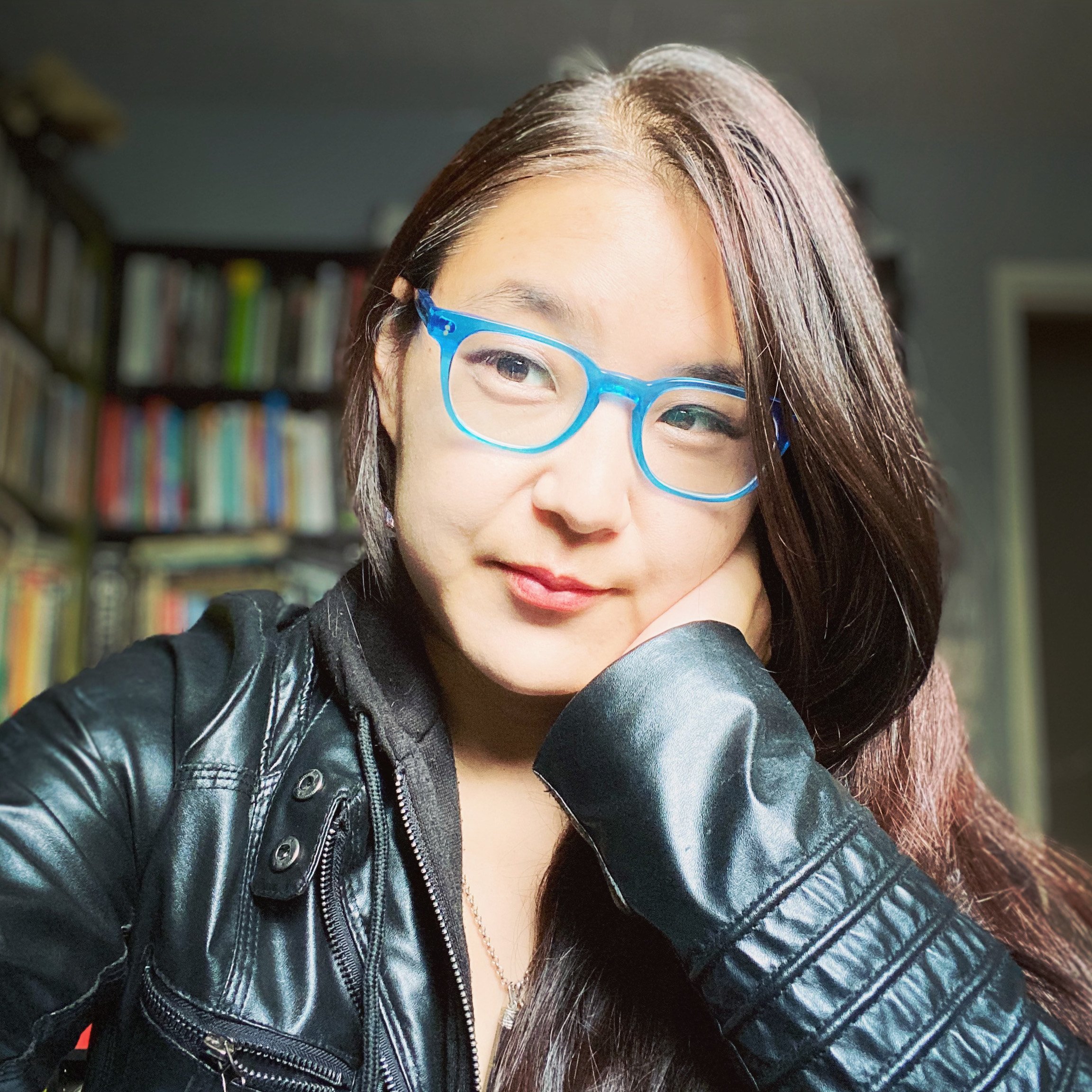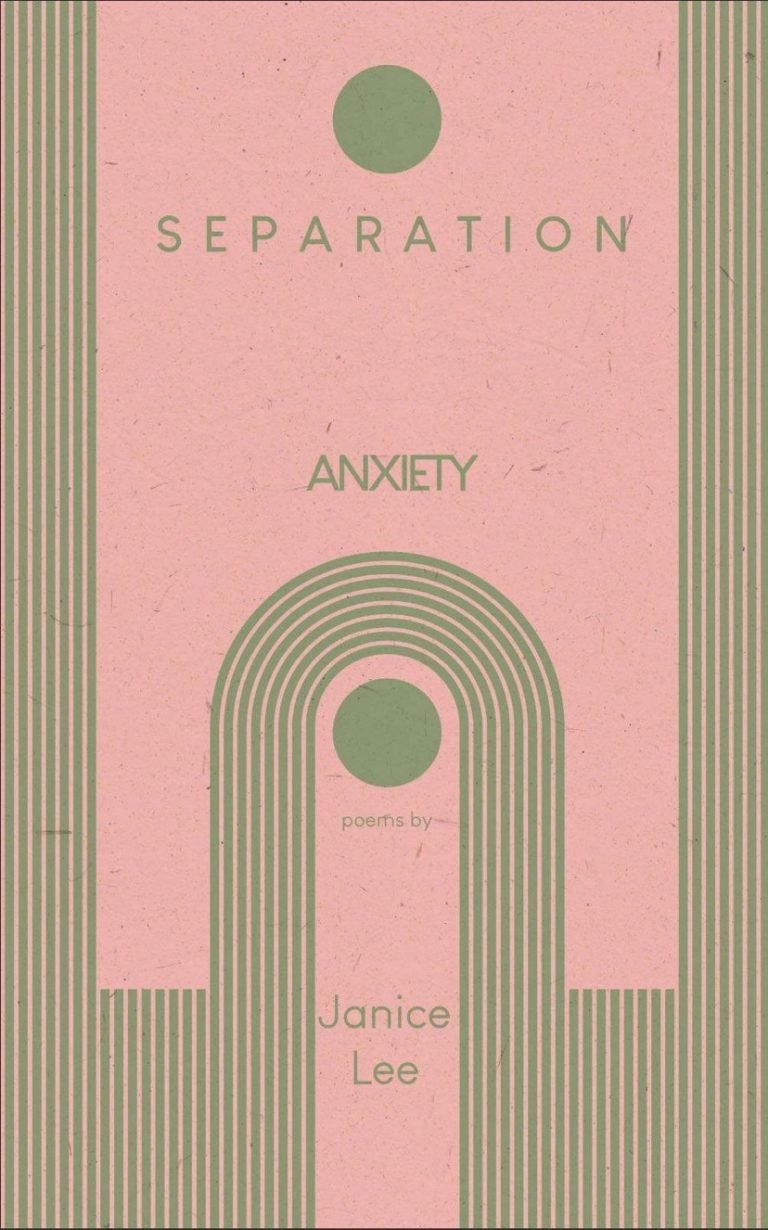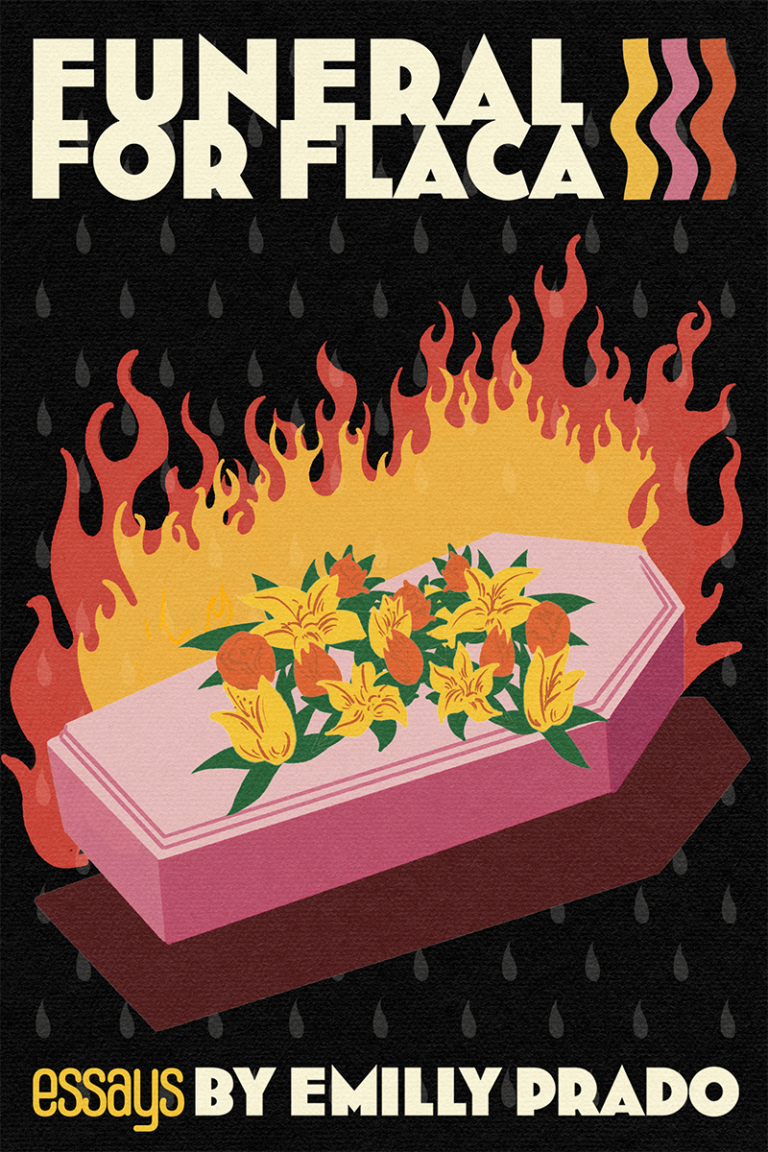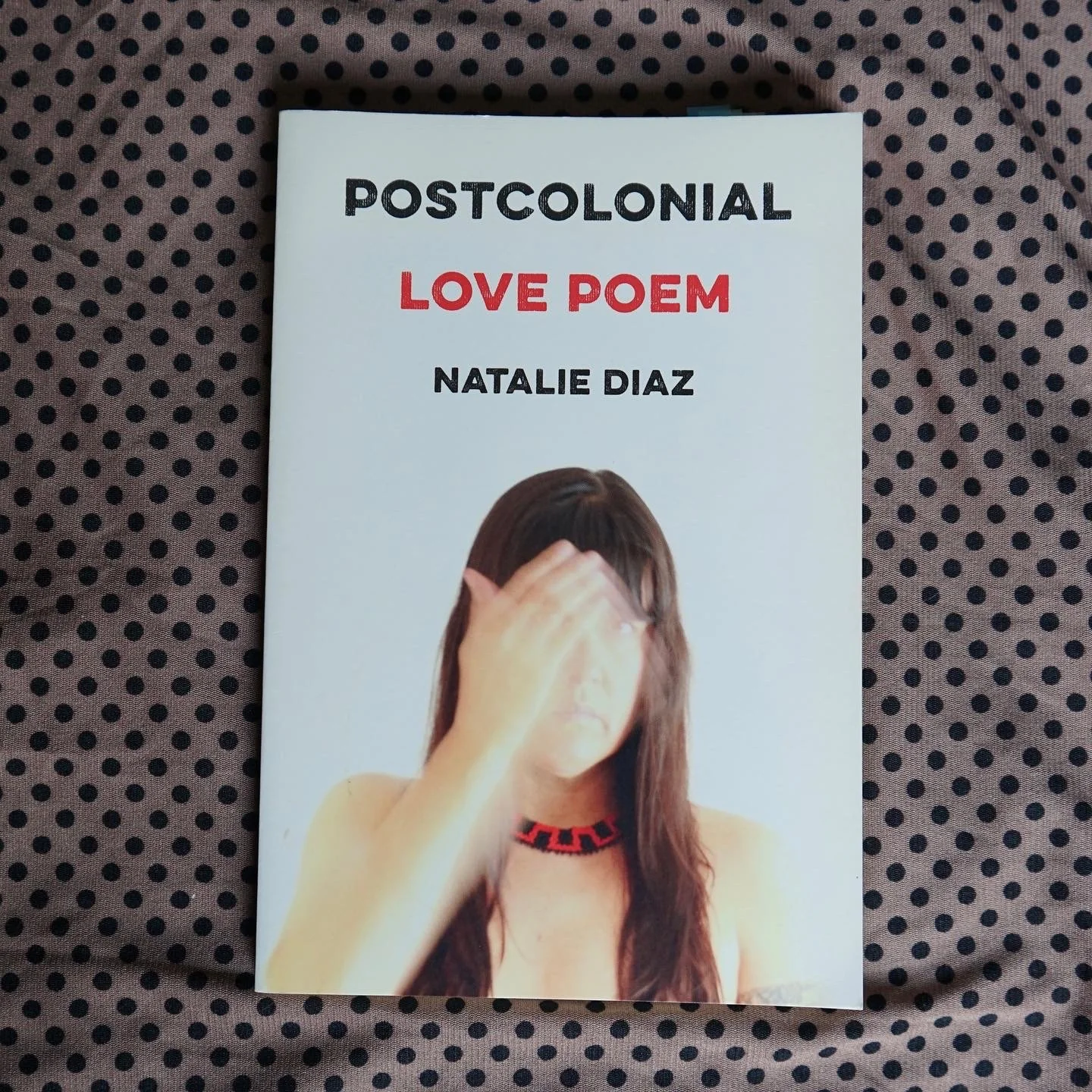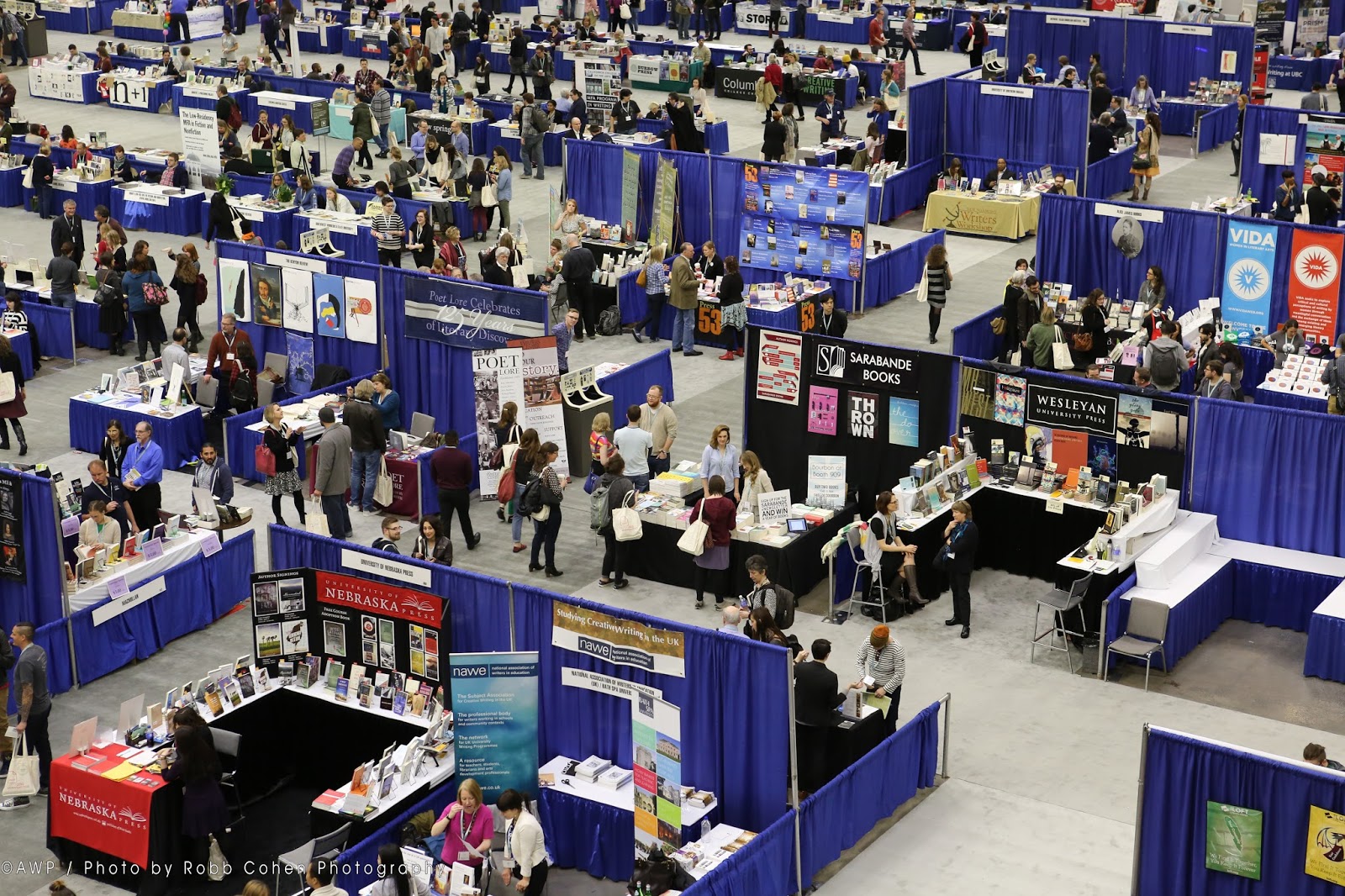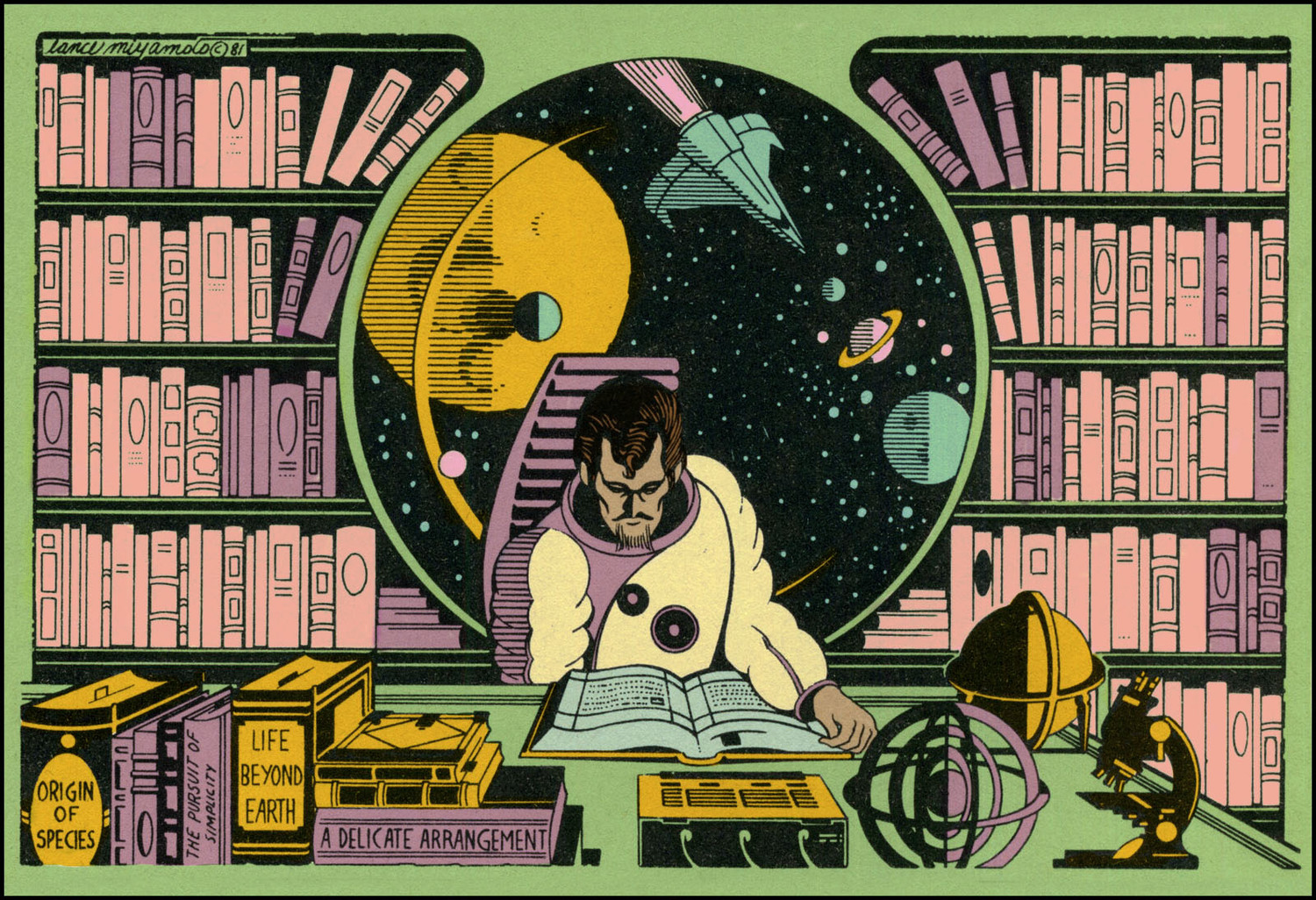Janice Lee is a Korean-American writer, educator, and healer. She has written books in nearly all genres including fiction, creative nonfiction, and most recently poetry. Janice Lee’s most recent book of poems, Separation Anxiety, guides us through grief and healing in communication with nature, humans, animals, and the afterlife. Separation Anxiety gathers bits of humor, sadness, and hope through its movement of form. While reading Separation Anxiety, I was carefully placed in the cycle of healing and emotional hues shined onto me from page to page.
— Sam Rivas, Contributor & Guest Author
SAM RIVAS [SR]:
I am curious to know the story behind the title Separation Anxiety, can you share how it came about?
JANICE LEE [JL]:
I'm bad with titles and kind of hate titles, that’s why none of the poems have them. I feel like it just kind of came to me since I was writing these poems for a while. At some point, I had this placeholder title of Separation Anxiety. Both of my dogs, that the book is partially about, had very bad separation anxiety, in a very literal sense, right? They were rescues and there was a lot of training around that. It also seemed to really encompass the kind of separation anxiety that we have around loss and grief. Most of this was written at the beginning of the pandemic, which is also a different kind of separation anxiety. So, it started as a placeholder title, but then it just stayed. I didn't know what else would be a better title. But it really started with my dogs.
SR:
I can relate, I still struggle with titling individual poems.
JL:
I'm usually a prose writer. With prose, I feel like I only have to come up with one title for the whole thing. This task of coming up with a title for every single one didn't make any sense, especially because they were written without titles. It would be forced for me to go back and figure out 60 titles.
SR:
Does poetry allow you to be more experimental with white space? How was this experience of genre jumping from fiction to poetry?
I noticed in poem 37, punctuation is used to ask about “touch” (one of my favorite moments in your book).
JL:
I've always written in between genres. My first book is very strange. It was my MFA thesis, and there's all sorts of white space, and I have illustrations. It was me experimenting and being intentionally resistant to the canon and everything. Even with that, all my fiction teachers and my fiction friends were like, oh, this is an experimental novel, and all my poetry friends and my poetry teachers were like, this is just a long poem. I started off very confused about genre and then I started to understand how categories could be productive and not only limiting. I heard a talk once with Renee Gladman, who I also feel writes kind of in between genres, but she calls most of her work fiction. She talked about this question of, why not just call it writing? why call it fiction? And she talked about how it’s importance for work to be read in the tradition, with the expectations of fiction, even if it doesn't meet those expectations, because if it's just writing or it has no label, then a reader is coming in without those expectations. She's wanting those tensions to be there and that was so interesting to me. That made a lot of sense, where I feel like I am working in my prose, like with narrative and with expectations of narrative, even if I'm handling it kind of differently. With poems, I feel like I can do a little bit more, I can play a little bit more on the page. I can also think a little bit more outside the confines of grammatical structures and sentences. I can use white space a little bit more with poetry. For me, it was also a rehabilitating kind of experience from writing this novel that I had been so deeply entrenched in for many years. Not only was it intense to write, content-wise, because it's about trauma and abuse, and there're a lot of intense subjects, but also writing there are these long sentences that don't end. It was very encapsulating of my experience for so long. The poems for me were a way to reacquaint myself with language in a different way, that wasn't about being entrenched in intense emotion and suffering. I had a lot of fun with these poems, also. Even when I'm writing about sad things, I could fulfill my desires to do things that maybe those desires wouldn't even arise when I was writing in prose.
SR:
There is some relief in having white space to surround vulnerable words. During the reading and writing process, the moments of white space allow us to feel okay with ourselves.
JL:
Someone once told me, poetry is not about language, it's about attention. I really feel that in poetry. There’s a word or a phrase, or an image that catches my attention, I can just sit with that. In prose, I feel that I need to really explain why I'm thinking about this image. There's a different kind of expectation, and some of it is self-imposed, but it doesn't feel like we have quite the freedom to just sit with one word in prose, right? Whereas in poetry, I'm just going to sit with a single word.
SR:
Grief is a prevalent theme in Separation Anxiety. Throughout the book, the speaker has a heightened awareness to all living creatures including ants. Is there a rebirthing after loss that is happening in this that somehow highlights animals? I’m curious to understand the connection between grief and all the animals presented in this book.
JL:
I'm someone who has been very familiar with grief my whole life. I've had people pass away and I've lost lots of loved ones since I was very young. I think that has really affected the way that I see the world. Whereas, when I went to college, I had so many friends who had never had a family member die yet. It was kind of interesting, strange, I had seen people die, and so I feel like I've kind of walked through the world a little bit differently. When my first dog Benny died, a close friend of mine sent me this quote by Tara Brach. I can't remember exactly what it says but it's something along the lines of, a lot of indigenous cultures look at the time of grief as being a sacred time, and that those who are grieving are in between worlds, and they have a clarity and wisdom that other people don't have. In some cultures, when people have lost someone, you go to the grieving person, and you ask them for advice because they can see things that maybe you can't. That really helped me because with all the sadness, and all the despair that felt heavy, I did also feel like I was seeing things. I was kind of in between space and feeling things intensely. I was just feeling everything, so everything was making me intensely sad and happy. At the same time, I was really treasuring things, but also really missing things. There was so much simultaneous emotion all the time. I had a lot of losses in sequence, so my mother passed away, my dog passed away, then my dad passed away, and my other dog passed away. A lot of that happened just in a two-year period. This book even started with mostly being about my mother and my first dog, and then towards the end of it my other dog had also passed, and my dad had passed, so there's shadows of that in here. The book was also partially anticipating the deaths of my dogs. I didn't quite know some of the poems were waiting and expecting that they're going to pass soon and some of them were when they've already passed. It's not quite clear, so it's kind of the non-linearity of grief. One thing that I've learned in my practice is that part of the gift of grief is that ability to feel everything and to pay attention to everything, so it's also an attunement to the whole living world. For me, that living world encompasses everyone that's also passed on. In other realms. They're not living currently in my reality, but they were once living, or they're living energetically somewhere else. It taught me to pay attention to plants and animals, and just energies in different ways. A lot of that can still teach me things, even if it's not through language.
SR:
There are many moments where the speaker is using language of command or direction. I understood this as the speaker’s coping mechanism to get through a grieving process. Can you explain the reason behind the directional language? An example of this would be the last line of poem 46, “now, imagine you're at a party— “
JL:
So, I think, partially it's what you're describing, it’s kind of is a speaker talking to herself, a kind of insistence and guidance. A lot of my shamanic practice was leaking into this book so I think about instructions not as commands, but as guidelines. I lead a lot of meditations and most of that is in a second person, kind of imperative voice. They are just guidelines like, Now, imagine that. I think of them as invitations, if a reader or listener wanted to step into the invitation they could.
SR:
From my experience as a poet, I am constantly doing emotional labor when crafting my own work. How do you cope with the emotional labor when writing something like Separation Anxiety or anything vulnerable? Is the emotional labor worth it as a writer?
JL:
That’s a good question and I don't know, it's something I think about that I go back and forth on. Some writers will say, writing feels like therapy. I don't know if I really feel better. It is a question I ask myself all the time, what is the thing that I'm getting out of it? I know that when I write certain things, it feels like I must expel these things. Part of it is about releasing it and being able to let go. If I externalize it, I can let go of it. But you're right, a lot of times, there is a lot of emotional labor. I guess my hope is that some of that labor and processing that I do, might help a reader with their own processing and labor. I think that artists or poets, a lot of us have mechanisms to expel some of that, but some people don't. With this book, my hope is that it just asks people to pay attention to the things that support them. Whether or not it's something like poetry, maybe it's just spending time in your garden or going for a walk. An acknowledgement that there actually is support everywhere if we want to encounter it.
SR:
Poem 23 feels like an unraveling of self through anaphora. I'm in awe of its urgency for comfort through its short lines creating a false finality. How do you see this poem talking to the other poems in the color in this collection?
JL:
I love how you describe that. A lot of these poems were written very meditatively and without a lot of conscious intention in the moment, which is not always how I write. Sometimes I might have an idea or phrases, and they kind of sit down, but some of these I had a word or a phrase or a feeling and then things would just come out. I think this idea of being a “rough draft,” was something that really stuck with me throughout a lot of my shamanic practice. It kind of came up in different ways of saying it, in various languages, of this idea to better oneself. We always talk about healing journeys, and transformation. One of the things that one of my teachers said to me was, people always say that the goal is transcendence but, in our practice, it's not, it's translucence. It's how we become more transparent and translucent to ourselves and to others, and it's not about this vertical kind of linear idea of enlightenment. That really stuck with me. I think that is that repetition, when we're trying to heal from something. When we're learning, we often think about it in a way of, oh, I'm trying to get to the healed version of myself in the future, and if I keep trying and keep doing better, it's still like a linear journey. For me, it's easy to fall into that kind of thinking and also mirrors a capitalist idea of success. Healing or spirituality isn't like the capitalist idea of success, it can be very circular or cyclical. At least from my experience, what I've seen is that it's not about how to obtain or get to this thing, it’s not about how we change to become some other version of ourselves. It's about an investigation or excavation, to find more of ourselves that was already hidden and already there. It's not about change or transformation and another directionality, it's a change or transformation to just get back to who we already are right now. That's kind of how I see it speaking with other poems in the book. We already have access to all these ideas of circularity, or these ideas of healing, we just have to learn how to access it. It's not unattainable, it's not something that's far away or on a mountaintop. It helps to go to a mountaintop.
SR:
There is a silent pressure we sometimes face when trying to heal ourselves, but sometimes it’s just us going backwards to our past selves that we may not be fond of.
JL:
Yeah, I think some people will use language like reverting, right? When people are doing work on themselves, they say “I am reverting” but it's not quite reverting if you have an awareness. if you're not reacting skillfully, or you're acting emotionally, that awareness is already hugely better than unconsciously acting, right? I think that we often aren't compassionate enough with ourselves, to know we might not be reacting skillfully all the time. But that's part of the work and the journey.
SR:
What does it mean to you to “human better”?
JL:
I think a lot about words like “humane” because I've had a lot of conversations with one of my friends who's also a poet, Brenda Iijima, on how there are all these words around being human or humane. To be humane, is supposed to be this positive thing. But then when we think about what humans have done to other animal species, or to other planets, or to trees, or even to other people, what we've done in terms of colonialism and genocide, the word “humane” or to be a human doesn't seem that complimentary, right? A better word would be to be more animal, or to be more tree-like, right? Those seem more like a compliment. I wanted to play with how can we reframe what it means to be human? Can we suggest that to be human is maybe something that we're not quite good at? But it's something that we want to do, and what does that mean? Can’t that be about more interconnectedness, and learning more from other animals, and not having it focus on the human? What would it look like for the word “human” to have nothing to do with the human?
SR:
One thing I enjoyed about your book was the variety of very short poems mixed with longer poems. It felt like a surprise with each page. Though being impactful on their own, the pages with smaller poems felt like moments of white space where us readers can breathe and reflect. What was your process with arranging this book?
JL:
Yeah, some of them came quickly. I didn't even know I was writing a book for a while. It was me having some fun, and me being able to process and being able to write without feeling. I was writing in a labor-intensive way, then I realized I have like 30 or 40 poems, am I writing a book? After that, I was more consciously kind of writing things. They're not chronological, I printed them all out and was kind of arranging them. Some of the poems I've written earlier are earlier in the book and some of the later ones are later, but it's not exactly like that. I was thinking about moving from one to another, not in terms of narrative, but in terms of movement. I wanted to break things up and create space. There are some poems that, at least to me, are funny. I wanted different emotions to appear, so I like that you said it felt like a surprise. I wanted it to be not a difficult book to get through, or a book that you could also just flip through that could be read in any order.
SR:
What does “de-canonizing” mean to you, either as something you have consciously enacted in your work as a writer of color, or how you have experienced it (or not) in reading/publishing/literary life?
JL:
This is something I think about a lot, to decanonize, which to me is also related to decolonize. This is also related to a lot of conversations around how do we disrupt or dismantle systems of power or dominant narratives. I think the younger version of myself was much more in the energy of wanting to disrupt, it was much more with rage, and really wanting to tear things down. Whatever the literary equivalent of tearing down the buildings, and then making new ones. Not that that isn't also necessary, I think I've been thinking more about, what does it mean to break something down? And then to make something new, right? How do we do that in a way that doesn't replicate the same energies that we're trying to dismantle? That's a hard trap, it's a hard thing to think about sometimes. When we're really wanting justice for something and we can use our anger and rage to channel it to build something that's collaborative and passionate; or we can fall into needing to violently dismantle this thing in a way that replicates the same energy that created some of that violence in the first place. It's hard to find the balance. Even for writing, I've started to move away from terms like ‘experimental’ or ‘innovative’, because I don't feel like I'm resisting the dominant narratives anymore. I see it more as, I'm attempting to write certain versions of reality that I see and that I can access. I'm looking for ways to do that, and those happen to not be what the dominant narratives do. Language is important, to say that it's not, that I'm not dismantling a dominant narrative—it's more about me trying to write my reality. Otherwise, the subtle difference is still giving power and credit to those canonical narratives to reinforce the power that they have. Part of the prevalent problem is it's a very hegemonic system of continuing to call this the canon; if we continue to call them the dominant narratives, we're still giving them that power. They do have this power, but we can take it away. We can easily just say, these other ways of writing, these other ways of seeing reality, are just as valid. I'm thinking more than the idea of decanonizing or decolonizing, how can we have better language for what it is that we're trying to do? Which is not just about working against or reacting against, it's about making space and making room for the ways that people have always already seen reality. It's already their experience. They just haven't been seen as widely, and that's why they haven't had power. So, I think about it, like weeds growing in cracks, like dandelions growing in cracks, maybe people haven't noticed them, but they've always been growing. They've always been there, right? They've always been that persistence, and they have just as much right to be there in the way that they live. But we've just chosen to not see them as being as valid as other types of plants or whatever, because we had a certain idea or expectation of what things should be. I've been thinking about how to have better language around what it is that we're really trying to do. We say we are decanonizing, right? Instead of un-canonizing the canon, can we just make a new canon?
BIOS
Janice Lee (she/they) is a Korean American writer, teacher, spiritual scholar, and shamanic healer. She is the author of 7 books of fiction, creative nonfiction and poetry: KEROTAKIS (Dog Horn Press, 2010), Daughter (Jaded Ibis, 2011), Damnation (Penny-Ante Editions, 2013), Reconsolidation (Penny-Ante Editions, 2015), The Sky Isn’t Blue (Civil Coping Mechanisms, 2016), Imagine a Death (Texas Review Press, 2021), and Separation Anxiety (CLASH Books, 2022). A roundtable, unanimous dreamers chime in, a collaborative novel co-authored with Brenda Iijima, is also forthcoming in 2022 from Meekling Press. An essay (co-authored with Jared Woodland) is featured in the recently released 4K restoration of Sátántangó (dir. Béla Tarr) from Arbelos Films. She writes about interspecies communication, plants & personhood, the filmic long take, slowness, the apocalypse, architectural spaces, inherited trauma, and the Korean concept of han, and asks the question, how do we hold space open while maintaining intimacy? Incorporating shamanic and energetic healing, she teaches workshops on inherited trauma, healing and writing, and practices in several lineages, including the medicine tradition of the Q’ero, Zen Buddhism (in the tradition of Plum Village and Thich Nhat Hanh), plant & animal medicine, and Korean shamanic ritual (Muism). She currently lives in Portland, OR where she is an Assistant Professor of Creative Writing at Portland State University. Instagram / Twitter: @diddioz
Sam Rivas (she/her) is a Chicanx photographer and poet born and raised in Southern California. Currently, she is a first year MFA candidate in the poetry strand at Portland State University and serves as one of two poetry co-editors at The Portland Review. Instagram: @sam.writes.poetry


